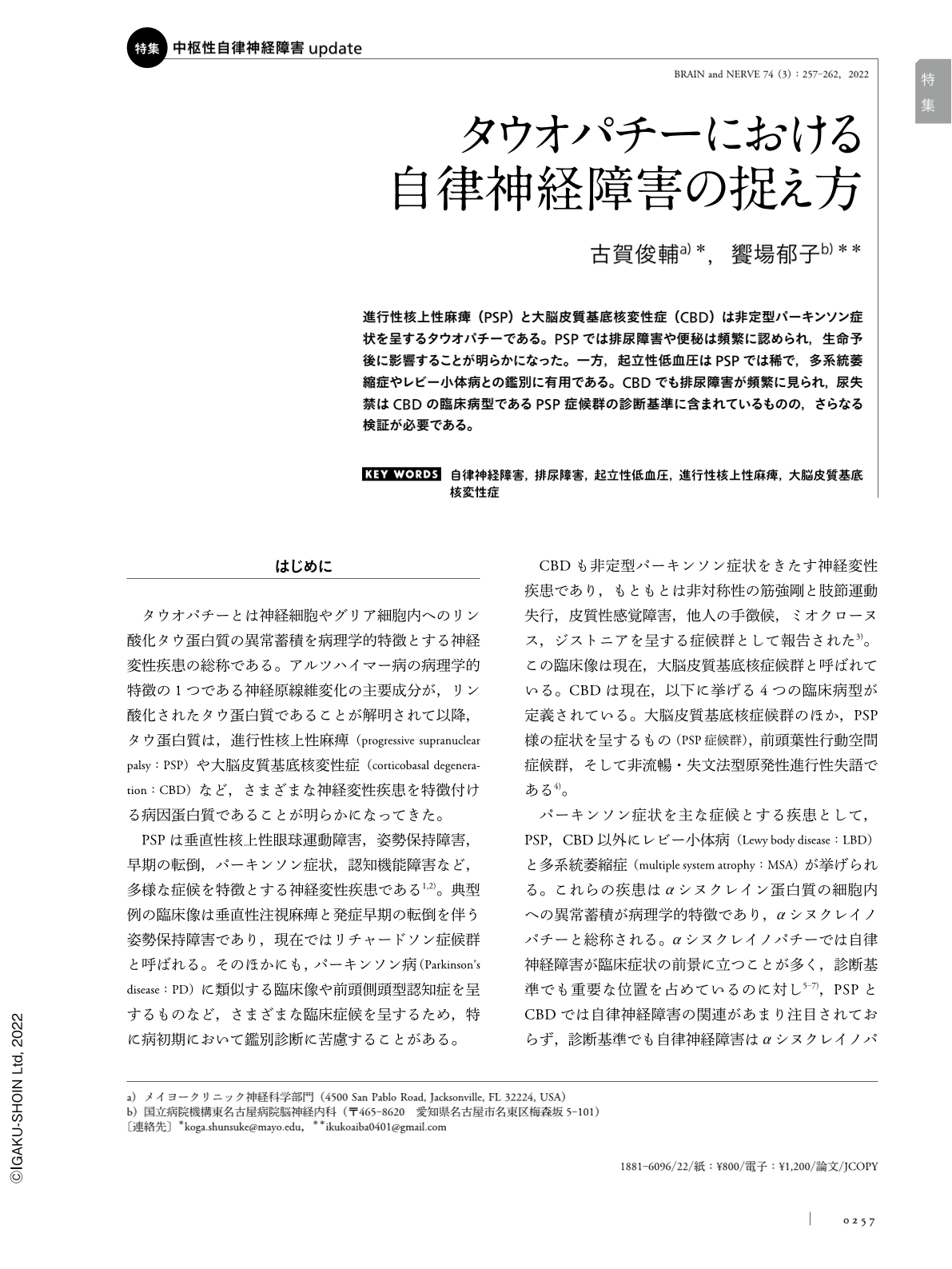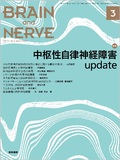Japanese
English
- 有料閲覧
- Abstract 文献概要
- 1ページ目 Look Inside
- 参考文献 Reference
進行性核上性麻痺(PSP)と大脳皮質基底核変性症(CBD)は非定型パーキンソン症状を呈するタウオパチーである。PSPでは排尿障害や便秘は頻繁に認められ,生命予後に影響することが明らかになった。一方,起立性低血圧はPSPでは稀で,多系統萎縮症やレビー小体病との鑑別に有用である。CBDでも排尿障害が頻繁に見られ,尿失禁はCBDの臨床病型であるPSP症候群の診断基準に含まれているものの,さらなる検証が必要である。
Abstract
Progressive supranuclear palsy (PSP) and corticobasal degeneration (CBD) are tauopathies that clinically present with atypical parkinsonism. Autonomic dysfunction is known to occur in synucleinopathies, particularly in cases of multiple system atrophy; however, the frequency and features of autonomic dysfunction in patients with tauopathies remain unclear. Recent studies have reported that urinary dysfunction and constipation are common and affect the prognosis of patients with PSP. In contrast, neurogenic orthostatic hypotension is rare in PSP, which is useful to distinguish PSP from multiple system atrophy and Lewy body disease. Urinary dysfunction is also commonly observed in patients with CBD and serves as an inclusion criterion for PSP syndrome in patients with CBD. However, this finding is not validated in other cohorts; therefore, further studies are warranted to confirm the usefulness of this criterion.

Copyright © 2022, Igaku-Shoin Ltd. All rights reserved.


